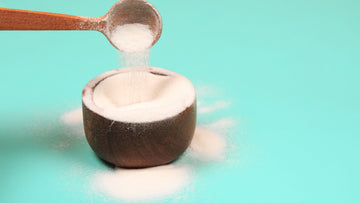
Coffee is often celebrated as the go-to solution for combating fatigue and boosting alertness. Yet, paradoxically, many individuals find themselves feeling more exhausted despite their regular coffee consumption. This article delves into the science behind this phenomenon, exploring how caffeine affects our energy levels, sleep patterns, and overall well-being.
Understanding Caffeine's Mechanism
Caffeine, the primary stimulant in coffee, functions by blocking adenosine receptors in the brain. Adenosine is a neurotransmitter that promotes sleep and relaxation; as it accumulates throughout the day, it creates a pressure to sleep. By inhibiting adenosine, caffeine temporarily wards off drowsiness, leading to increased alertness and wakefulness.
The Temporary Nature of Caffeine-Induced Alertness
While caffeine can provide a short-term boost in energy, its effects are fleeting. As the body metabolizes caffeine, adenosine that was previously blocked can bind to its receptors, often resulting in a sudden onset of fatigue, commonly referred to as a "crash." This rebound effect can leave individuals feeling more tired than before their caffeine intake.
Caffeine's Impact on Sleep Quality
Regular consumption of caffeine, especially in the latter part of the day, can significantly disrupt sleep patterns. Studies have shown that caffeine intake can lead to:
-
Delayed Sleep Onset: Caffeine can increase the time it takes to fall asleep.
-
Reduced Total Sleep Time: Overall sleep duration may decrease following caffeine consumption.
-
Altered Sleep Stages: Caffeine can decrease the proportion of deep sleep (N3 and N4 stages) and increase light sleep (N1 stage), leading to less restorative rest.
These disruptions not only diminish sleep quality but also contribute to daytime drowsiness, prompting increased caffeine consumption and perpetuating a cycle of fatigue.
The Vicious Cycle of Caffeine Dependence
Relying on caffeine to combat tiredness can lead to a self-perpetuating cycle:
-
Increased Tolerance: Over time, the body may require higher doses of caffeine to achieve the same stimulating effects.
-
Sleep Disruption: Elevated caffeine intake can further impair sleep quality, leading to greater fatigue.
-
Heightened Consumption: To counteract this fatigue, individuals may consume even more caffeine, exacerbating the problem.
This cycle can lead to dependence and may negatively impact overall health.
Individual Variations in Caffeine Metabolism
It's important to note that caffeine's effects can vary significantly among individuals due to factors such as:
-
Genetics: Genetic variations can influence how quickly caffeine is metabolized.
-
Age: Metabolism rates can change with age, affecting caffeine sensitivity.
-
Tolerance Levels: Regular consumers may develop a tolerance, altering caffeine's impact.
These differences mean that while some people can consume coffee with minimal disruption to their sleep and energy levels, others may experience pronounced adverse effects.
Strategies for Managing Caffeine Consumption
To mitigate the paradoxical effects of caffeine on energy levels, consider the following strategies:
-
Limit Intake: Keep daily caffeine consumption within moderate levels, typically defined as up to 400 milligrams (about four 8-ounce cups of brewed coffee) for most adults.
-
Mind the Timing: Avoid consuming caffeine in the late afternoon or evening to prevent sleep disturbances.
-
Monitor Individual Responses: Pay attention to how your body reacts to caffeine and adjust your intake accordingly.
-
Explore Alternatives: Consider non-caffeinated methods to boost energy, such as regular physical activity, staying hydrated, and maintaining a balanced diet.
By understanding and respecting the complex relationship between caffeine and our body's natural rhythms, we can make informed choices that promote sustained energy and overall well-being.




